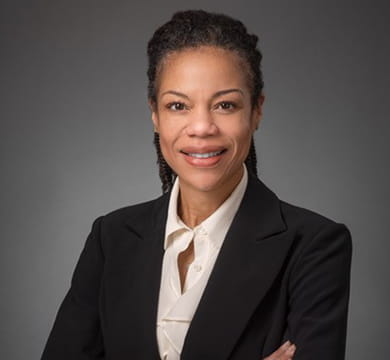Network Advisor Spotlight: Natalie C.W. Norman
Natalie C.W. Norman has great faith in new advisors’ ability to meet increasing demands for specialization – as long as they get comfortable with being uncomfortable.
These days, clients expect more from their financial advisors, said Natalie Norman, who has been part of the changing landscape of advising with her Ann Arbor, Michigan, practice of more than 23 years.

“The value many financial advisors are adding today, it’s different than it was in the past,” Natalie said. “Our clients are calling upon us to do things like divorce mediation and to be the quarterback between their attorneys and their CPAs. They are really calling on financial advisors to deliver on a more focused level of specialization.”
Since starting her practice, the importance of bespoke investment selection and personal financial planning hasn’t diminished, but it’s been joined by adjacent concerns, including healthcare, estate planning, legislative impacts, family conflicts, behavioral finance, mental well-being and philanthropy. The pandemic did its part to add emotional intensity to client-advisor conversations, as well.
“Many of us came into this business because we had a penchant for picking solid investments,” Natalie said. “The social aspects, the complex interpersonal dynamics – that wasn’t necessarily where the interest was.”
But, to do the job well, you adapt, leading to the deeper client relationships of today.
That’s one way advisors earlier in their careers have an advantage, Natalie said, they’re native to an environment that demands an increasingly holistic set of skills. They have the training and resources to match.
“The new financial advisor was drawn to the career because it is a dynamic profession,” Natalie said.
“She expects to support clients on many levels, and as such, she understands the need to educate herself across disciplines. She is gathering tax information, watching the news about changes in healthcare and she is informed politically. She is a general financial practitioner, not an investment advisory specialist. The new advisor is equipped to do more – and she will.”
“To do the job well, you adapt, leading to the deeper client relationships of today.”
It’s a powerful combination that equips up-and-coming advisors to navigate, and create, the changes to the profession and the economy that will define the next 20 years.
That said, Natalie offers a key piece of advice for any would-be world changers: adopt a permanent personal growth approach and give yourself the time to develop.
Or, in short, “You need to be able to do business in neck-deep waters.”
The growth between comfort and discomfort
Imagine a shoreline, Natalie said. On one side, you’ve got the beach. That’s the place where you are most comfortable, relying on well-honed, hard-earned skills that no longer demand much from you, maybe on a topic like family budgeting. On the other side, you’ve got the really deep ocean, maybe the ultra-high-net-worth client developing family governance documents or in need of a 1031 exchange.
Both edges are appealing to new advisors for different reasons: one is comfortable and familiar, and the other promises a leap forward for their careers – that is, if they don’t drown. There is another place, however, one where you can keep your feet on the bottom but that encourages you to grow: the neck-deep waters at the edge of your skills.
“In this business, you can’t ‘fake it ‘til you make it,’” Natalie said, because to her, that’s unfair to your clients and unfair to your development as a professional. “Determine what your skill set is, currently, and maximize that. Develop the skills and seek out the clients.”
This approach to development can also provide a prospecting edge. Instead of asking your clients if they know anyone who needs a financial advisor, you can ask them if they know someone who has a specific financial need. You’re more likely to get a positive response than a generic elevator pitch.
“You’ll be able to approach prospective clients and be able to think ‘this household needs me’ with confidence,” Natalie said.
This is the journey of a career, a continuous cycle of improvement and application.
“We have to spend the time to develop,” Natalie said. “It’s a maturity process; it’s not about will. You can’t will yourself into being an excellent financial advisor.”
You have to try new things, Natalie said. There will be errors, so you should own them, improve from them and move forward – openly and honestly with your clients. And read, a lot. Your skills will develop with your clients’ needs. If you find yourself back in the shallows, resist the urge to plop down on that beach. Instead, look for something new that can serve your clients’ needs but also makes you uncomfortable. Embrace it.
“This is the journey of a career, a continuous cycle of improvement and application.”
“Growth will come as long as you understand that the discomfort you feel is natural,” she said. “As long as you’re doing business in neck-deep waters, there should always be a tinge of discomfort. If you’re feeling absolutely confident, you need to elevate your expectations for yourself.”
This piece was featured in BFAN Connection, an annual newsletter from the Black Financial Advisors Network. View the latest.
Follow along on social media with #RJBFAN.